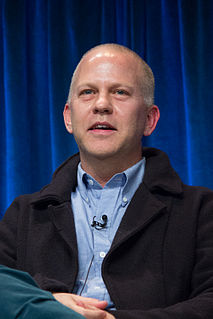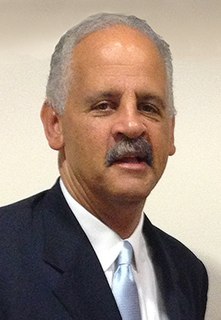A Quote by Paul Tillich
He who risks and fails can be forgiven. He who never risks and never fails is a failure in his whole being.
Related Quotes
Good things don't happen by coincidence. Every dream carries with it certain risks, especially the risk of failure. But I am not stopped by risks. Supposed a great person takes the risk and fails. Then the person must try again. You cannot fail forever. If you try ten times, you have a better chance of making it on the eleventh try than if you didn't try at all.
The TV scientist who mutters sadly, "The experiment is a failure; we have failed to achieve what we had hoped for," is suffering mainly from a bad script writer. An experiment is never a failure solely because it fails to achieve predicted results. An experiment is a failure only when it also fails adequately to test the hypothesis in question, when the data it produces don't prove anything one way or another.
When large companies take on risk, then they impose risks on the rest of the system. And these are systemic risks and these systemic risks we never used to think were really that important, but as soon as we recognize how the financial sector - the risks the financial sector takes on can impact the entire global economy, we realize that those risks needed to be controlled for the social good.
The trouble is that the risks that are being hedged very well by new financial securities are financial risks. And it appears to me that the real things you want to hedge are real risks, for example, risks in innovation. The fact is that you'd like companies to be able to take bigger chances. Presumably one obstacle to successful R&D, particularly when the costs are large, are the risks involved.
...the more risks you allow children to take, the better they learn to take care of themselves. If you never let them take any risks, then I believe they become very prone to injury. Boys should be allowed to climb tall trees and walk along the tops of high walls and dive into the sea from high rocks... The same with girls. I like the type of child who takes risks. Better by far than the one who never does so.
There are always risks when you chase after a dream because growth requires that you leave your comfort zone and enter unknown territory. But without confronting those risks and facing your fears, you'll never, as Nike says, "Just do it." Now the truth is, you may fail in some of your efforts, but you will never succeed if you are not willing to risk failure. And even if you do fail, you can learn from the experience and try again. To do that, you will need courage, and you will also need to have faith in your ability to achieve your goals.
The advantage of knowing about risks is that we can change our behavior to avoid them. Of course, it is easily observed that to avoid all risks would be impossible; it might entail no flying, no driving, no walking, eating and drinking only healthy foods, and never being touched by sunshine. Even a bath could be dangerous.





































